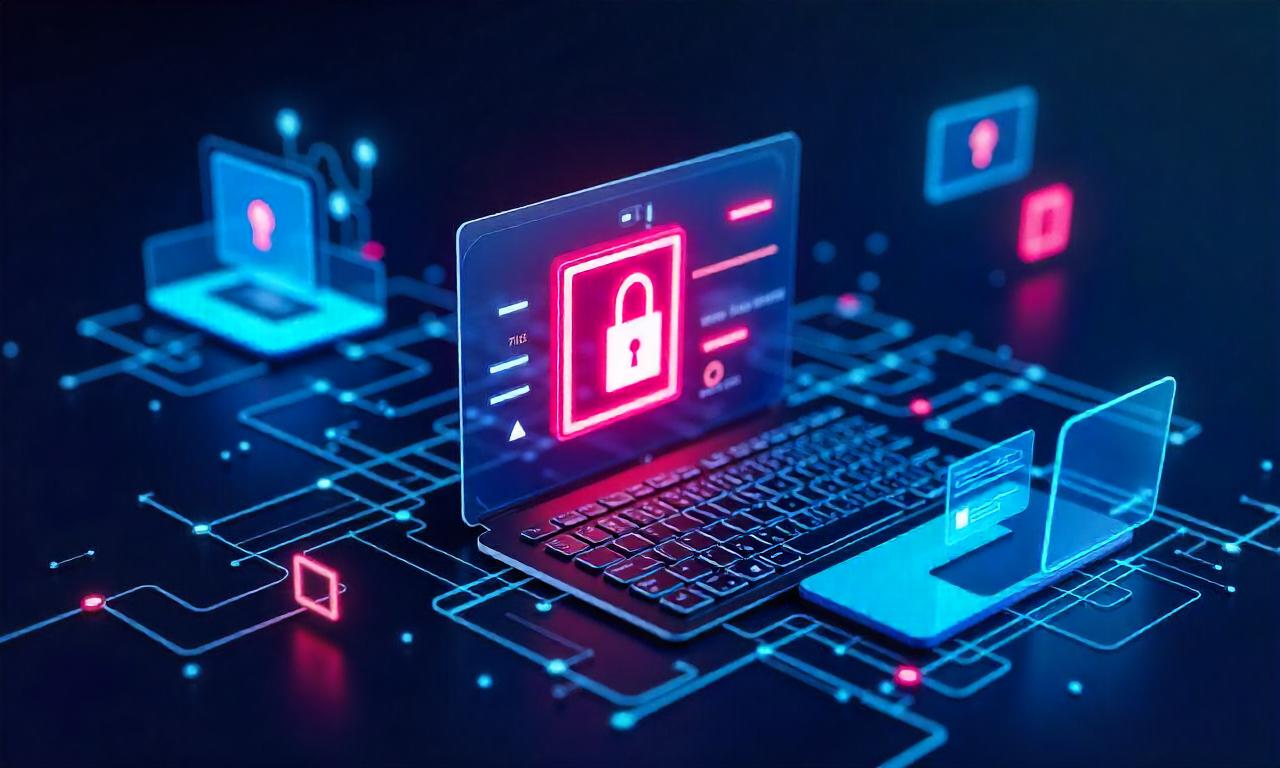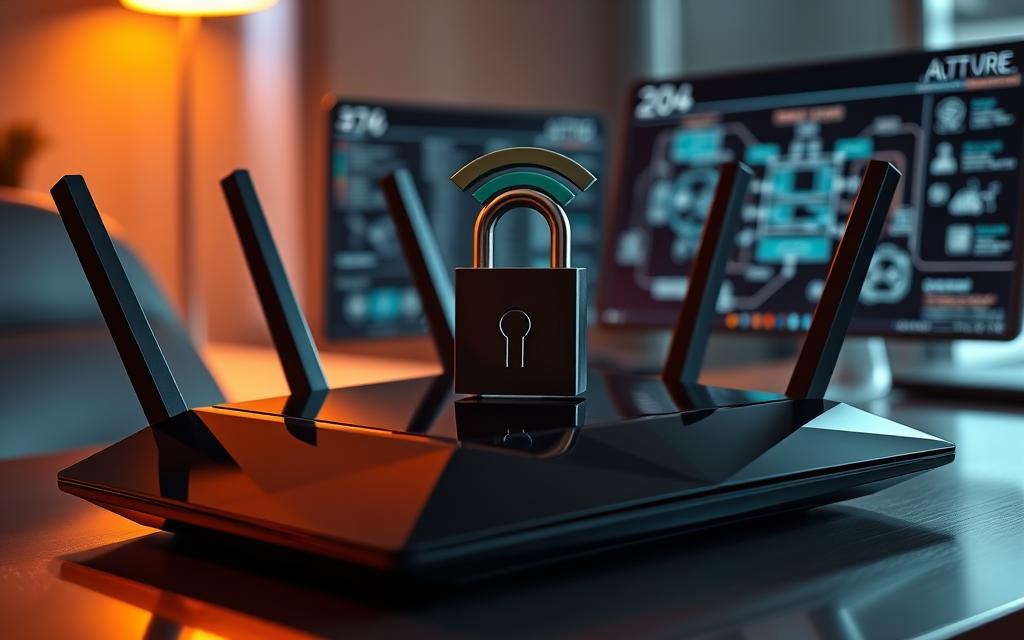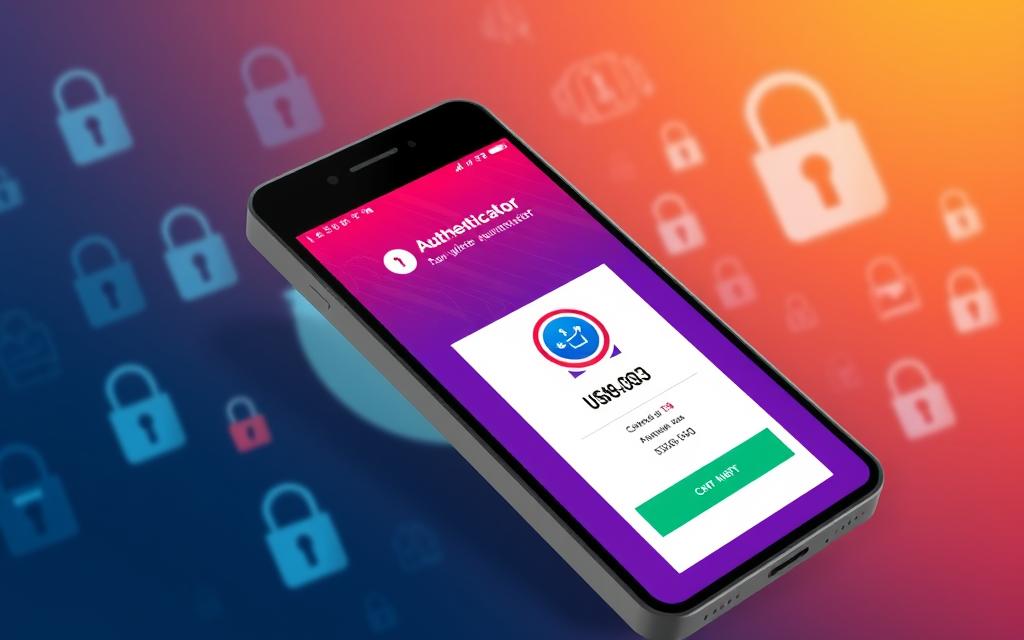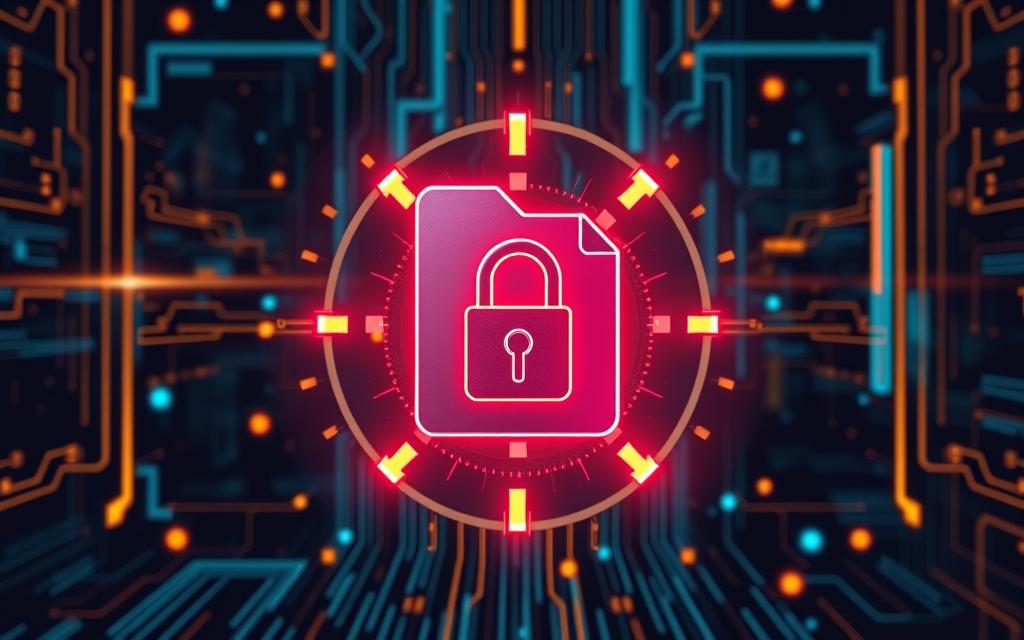Cybersecurity for Small Business: Learn how to secure your small business from cyber threats with affordable tools and expert tips. Build a safer future for your business today!
Running a small business is no small feat. From managing operations to keeping your customers happy, your plate is already full. Now imagine losing valuable customer data or being locked out of your systems due to a cyberattack. Sounds terrifying, right?
Cybersecurity for small business is often overlooked because of limited resources or the misconception that hackers only target large corporations. The truth?
Small businesses are prime targets because of their perceived vulnerability. Don’t worry—this article has you covered. We’ll walk you through everything you need to know to protect your business effectively without breaking the bank.
Ready to take charge of your business’s security? Let’s dive into the essentials of cybersecurity for small businesses!
Table of Contents
ToggleCybersecurity for Small Business
What exactly does “cybersecurity for small business” mean? It’s the process of protecting your business’s digital assets—like sensitive customer information, financial data, and operational systems—from unauthorized access and cyber threats. From phishing attacks to ransomware, the risks are many, but the solutions are simple if approached strategically.
Implementing cybersecurity measures isn’t just about technology; it’s also about adopting practices and policies that make your business a tough target for cybercriminals.
Why Focus on Small Businesses?
The assumption that hackers prioritize large enterprises is a myth. In reality, small businesses are more likely to lack the robust defenses of their larger counterparts, presenting a tempting opportunity for malicious actors.
From phishing emails targeting employees to ransomware attacks holding systems hostage, small businesses face a wide array of challenges.
The Cost of Neglecting Cybersecurity
Neglecting cybersecurity can lead to significant losses. Studies show that over 60% of small businesses close within six months of a cyberattack due to financial and reputational damage. Addressing these risks proactively is essential to securing your business’s long-term viability.
Why Cybersecurity Matters for Small Businesses
Cybersecurity is more than just a safety net—it’s a necessity for any business that wants to survive and thrive in the digital age. Let’s explore why it’s particularly important for small businesses:
1. Small Businesses Are Prime Targets
Contrary to popular belief, hackers don’t just go after large corporations. Small businesses often have weaker security measures, making them easier targets. These businesses are often part of larger supply chains, so a breach in a small business can serve as a gateway to attack larger entities.
An attack on one small business can have a ripple effect, affecting partners, suppliers, and even customers. Hackers exploit these vulnerabilities for maximum impact.
2. Legal and Financial Repercussions
Small businesses are subject to data protection regulations, including GDPR, HIPAA, and CCPA. Failure to comply can result in hefty fines and legal complications. Cybersecurity ensures that you’re meeting compliance standards while protecting sensitive customer information.
A small retail business that suffers a data breach may face lawsuits from customers whose data was exposed, in addition to penalties for non-compliance with privacy laws.
3. Customer Trust and Brand Reputation
In the digital age, trust is everything. A single cybersecurity incident can shatter the trust your customers have in your business.
With social media amplifying every negative experience, rebuilding your reputation can take years. Proactive cybersecurity measures not only protect your business but also enhance customer confidence.
Common Threats Faced by Small Businesses

Small businesses face an array of cybersecurity threats. Understanding these threats is the first step toward protecting your business.
1. Phishing Scams
Phishing attacks are deceptive emails or messages designed to trick recipients into revealing sensitive information or clicking on malicious links.
- How It Works: Cybercriminals pose as legitimate entities, such as banks or vendors, to steal credentials or financial data.
- Impact: A single employee falling victim can compromise the entire business network.
2. Ransomware Attacks
Ransomware is malware that encrypts your data, holding it hostage until a ransom is paid.
- How It Works: Hackers gain access to your system through weak links, such as unpatched software or phishing emails.
- Impact: Ransomware can halt your operations, with some businesses unable to recover due to financial losses or permanent data loss.
3. Insider Threats
Not all threats come from external sources. Insider threats occur when employees, contractors, or partners misuse their access to harm your business.
- Intentional vs. Unintentional: Some insiders act maliciously, while others unknowingly compromise security by ignoring protocols or falling for scams.
4. Weak Passwords and Credential Theft
Easily guessable passwords are a gateway for hackers. Once they gain access to your systems, they can infiltrate sensitive areas undetected.
- Example: Using “password123” might be convenient, but it’s an open invitation for attackers.
Essential Cybersecurity Practices for Small Businesses
Taking proactive steps can protect your business from most cyber threats. Here’s how you can build a strong cybersecurity foundation:
1. Educate and Train Employees
Employees are your first line of defense against cyber threats. Regular training ensures they are aware of potential risks and know how to respond.
- Key Topics to Cover: Phishing recognition, safe browsing habits, and password hygiene.
- Ongoing Training: Make cybersecurity a regular part of your business operations. Monthly or quarterly refreshers can reinforce good habits.
How Training Helps
Well-informed employees are less likely to fall for phishing attempts or accidentally expose the network to malware. By creating a culture of cybersecurity awareness, you reduce the risk of human error.
2. Use Strong Passwords and Multi-Factor Authentication (MFA)
Password-related breaches are among the most common cybersecurity incidents. Strengthen your defenses by implementing strong passwords and MFA.
- Password Best Practices: Use complex combinations of letters, numbers, and symbols. Change passwords regularly and avoid reusing them.
- MFA: Adds an extra layer of protection by requiring a second verification step, such as a code sent to your phone.
Real-World Benefits
Even if a hacker manages to guess a password, MFA ensures they cannot access the account without the secondary verification method.
3. Implement Firewalls and Antivirus Software
Firewalls and antivirus programs are essential for defending against cyber threats.
- Firewalls: Act as a barrier between your internal network and external threats.
- Antivirus Software: Scans and removes malicious files before they can cause damage.
Choosing the Right Tools
Ensure your antivirus software is up-to-date and that your firewall settings are configured to block unauthorized access.
4. Secure Wi-Fi Networks
Your Wi-Fi network can be an entry point for hackers if not secured properly.
- Encryption Protocols: Use WPA3, the latest and most secure standard for Wi-Fi encryption.
- Hidden SSID: Make your Wi-Fi network invisible to unauthorized users.
- Guest Networks: Create separate networks for customers or visitors to minimize access to your primary systems.
5. Regular Backups
Backing up your data is critical for disaster recovery. If you fall victim to a ransomware attack or system failure, backups allow you to restore operations quickly.
- Automated Backups: Use cloud-based services to schedule daily or weekly backups.
- Storage Options: Keep multiple copies in different locations, including offsite and on-premises.
6. Limit Access
Not everyone in your organization needs access to all systems. Implement role-based access controls to minimize risk.
- Segmentation: Divide your network into sections and grant access only to those who need it.
- Monitoring: Regularly review access logs to detect and address unusual activity.
By following these practices, small businesses can significantly reduce the risk of cyber threats while ensuring compliance with regulations and building customer trust.
Read More : What is Cyber Security? The Ultimate Guide for Digital Safety
Affordable Cybersecurity Tools for Small Businesses
Securing your business doesn’t have to break the bank. There are numerous affordable cybersecurity tools available to small businesses that provide robust protection against cyber threats. Here’s a breakdown of some key options:
Password Managers
Password managers like LastPass and Dashlane simplify password management while enhancing security. They generate strong, unique passwords for every account and store them securely.
- Why It’s Important: Weak passwords are a leading cause of breaches. Using a password manager ensures your team adheres to best practices.
- Cost: Many password managers offer free plans with essential features, making them accessible to small businesses.
Antivirus and Malware Protection
Tools like Bitdefender, Norton Small Business, and Malwarebytes provide comprehensive protection against viruses, malware, and spyware.
- Features to Look For: Real-time scanning, automatic updates, and ransomware protection are must-haves.
- Cost: These tools often offer tiered pricing, starting with affordable packages for small teams.
Cloud Backup Services
Cloud backup solutions like Google Workspace, Microsoft OneDrive, and Backblaze ensure your data is securely stored and easily recoverable in case of a cyberattack.
- Benefits: Cloud storage offers encryption, automatic backups, and remote access to your data.
- Cost: Plans start at just a few dollars per month per user.
By combining these tools, you can build a cost-effective cybersecurity infrastructure that meets your business’s needs.
Developing a Cybersecurity Plan
Every small business needs a comprehensive cybersecurity plan to ensure that employees, systems, and data remain secure. Here’s how you can create an effective plan tailored to your business:
Step 1: Assess Your Risks
Begin by identifying the assets you need to protect, such as customer data, financial records, and intellectual property. Assess the potential threats to these assets, including external attacks, insider threats, and accidental data loss.
- Questions to Ask: Which assets are critical? What would be the impact of a breach?
- Tools to Help: Use risk assessment templates or services from organizations like the Cybersecurity and Infrastructure Security Agency (CISA).
Step 2: Set Policies and Procedures
Document clear policies for acceptable use of technology, password management, and handling sensitive information. Include an incident response plan outlining steps to take if a breach occurs.
- Key Elements: Define roles and responsibilities, establish protocols for reporting suspicious activity, and set guidelines for remote work security.
- Benefit: Policies provide a roadmap for employees, reducing the risk of errors and misunderstandings.
Step 3: Test and Update Regularly
Cyber threats evolve, so your plan must too. Regularly test your defenses with simulations, such as phishing tests or penetration tests, to identify vulnerabilities.
- Best Practices: Update your plan annually or after major incidents to address new threats and improve existing measures.
A well-crafted cybersecurity plan serves as the foundation of your business’s security strategy, ensuring you’re prepared for whatever comes your way.
Partnering with Experts
While many small businesses handle cybersecurity in-house, partnering with experts can elevate your defenses. Cybersecurity consultants and managed service providers (MSPs) offer professional insights and services tailored to your needs.
Benefits of Partnering with Experts
- Specialized Knowledge: Cybersecurity experts stay updated on the latest threats and technologies, offering solutions you might not be aware of.
- Tailored Solutions: Experts can assess your specific vulnerabilities and recommend tools and strategies that fit your business.
- Cost-Effective: Hiring full-time IT staff can be expensive. Outsourcing to experts allows you to access top-tier services at a fraction of the cost.
Services Provided by Experts
- Vulnerability Assessments: Identifying weaknesses in your systems and suggesting fixes.
- 24/7 Monitoring: Constant surveillance of your network to detect and respond to threats in real-time.
- Incident Response: Rapid support during breaches, minimizing damage and recovery time.
Finding the Right Partner
Look for experts or MSPs with a proven track record of helping small businesses. Check reviews, request case studies, and ensure they offer scalable solutions that grow with your business. Organizations like CybersecArmor.com specialize in small business cybersecurity and are a trusted resource for expert assistance.
Resources for Small Businesses
Small businesses don’t have to tackle cybersecurity alone. Numerous resources are available to provide guidance, tools, and support. Leveraging these resources can make a significant difference in your cybersecurity efforts.
Government Programs
Government agencies like the Cybersecurity and Infrastructure Security Agency (CISA) and the Small Business Administration (SBA) offer free cybersecurity guides, toolkits, and training programs.
- Benefits: These resources are tailored for small businesses and cover a wide range of topics, from securing networks to responding to data breaches.
- Example Tools: CISA’s “Cyber Essentials Toolkit” provides actionable steps for improving security.
Online Learning Platforms
Platforms like Coursera, LinkedIn Learning, and Udemy offer affordable courses on cybersecurity basics.
- Who Should Use These: Small business owners, employees, or IT staff looking to build foundational knowledge.
- Cost: Many courses are free or available at low cost, making them accessible for businesses on a budget.
Trusted Websites and Communities
Websites like CybersecArmor.com provide detailed articles, expert insights, and recommendations specifically for small businesses. Online forums and communities, such as Reddit’s r/cybersecurity, can also be valuable for networking and advice.
- Pro Tip: Stay subscribed to newsletters and blogs from trusted sources to keep up with the latest trends and threats.
By utilizing these resources, small businesses can build a strong cybersecurity foundation without overwhelming their budgets or teams.
Conclusion
Cybersecurity for small business isn’t optional—it’s essential for survival in today’s digital age. By implementing the practices outlined above, you can safeguard your business from cyber threats and build customer trust.
Still have questions? Visit cybersecarmor.com, your one-stop resource for practical, expert-driven cybersecurity solutions. Take action today and secure your business’s future!
FAQ
Q: Why is cybersecurity important for small businesses?
A: Small businesses are prime targets for hackers due to perceived vulnerabilities. Cybersecurity protects sensitive data, ensures compliance, and maintains customer trust.
Q: What are common threats faced by small businesses?
A: Phishing scams, ransomware attacks, and insider threats are the most common issues.
Q: How can I secure my small business on a budget?
A: Use affordable tools like LastPass for passwords, Bitdefender for antivirus protection, and OpenVPN for secure remote access.
Q: What are the first steps to creating a cybersecurity plan?
A: Assess risks, set clear policies, and regularly test and update your security measures.
Q: Where can I find affordable cybersecurity solutions?
A: Check out CybersecArmor.com for tailored, cost-effective solutions designed for small businesses.















